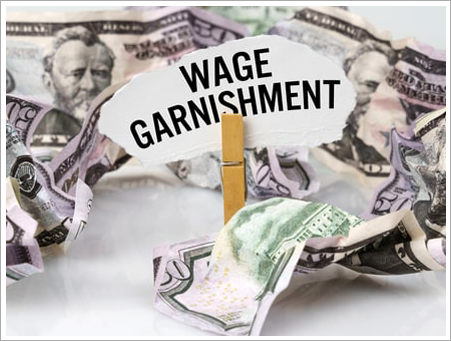When Can You Legally Garnish Someone’s Wages?
Wage garnishment is a legal process that allows creditors to collect debts by requiring a company to withhold a portion of an employee’s earnings. While wage garnishment can be effective, you must understand the legal requirements and limitations surrounding this process. An Illinois lawyer can help you with the circumstances under which wage garnishment is permitted and the steps creditors must take to initiate the process.
Obtaining a Court Judgment
In most cases, a creditor must obtain a court judgment against a debtor before pursuing wage garnishment. This judgment is a formal court order that states the debtor owes a specific amount of money to the creditor. Exceptions to this requirement include certain debts, such as unpaid taxes, student loans, and child support.

To obtain a court judgment, the creditor must file a lawsuit against the debtor and prove the existence and amount of the debt. If the court rules in favor of the creditor, it will issue a judgment that can be used to initiate wage garnishment.
Serving a Wage Garnishment Order
Once a creditor has obtained a court judgment, they must serve a wage garnishment order on the debtor’s employer. This order instructs the employer to withhold a portion of the debtor’s earnings and send it to the creditor or the creditor’s attorney.
In Illinois, the wage garnishment order must be served on the employer in accordance with the state’s procedural rules. The order must include specific information, such as the judgment amount, the judgment creditor’s name and address, and the percentage of disposable earnings to be withheld.
Limitations on Wage Garnishment
Illinois law places certain limitations on the amount that can be garnished from an employee’s wages. The maximum amount that can be garnished is the lesser of:
- 15 percent of the employee’s gross weekly wages, or
- The amount by which the employee’s weekly disposable earnings exceed 45 times the federal or state minimum wage, whichever is greater.
Disposable earnings are the amount left after legally required deductions, such as federal and state taxes, Social Security, and Medicare, have been made. Additionally, certain types of income, such as Social Security benefits, unemployment compensation, and workers’ compensation benefits, are exempt from wage garnishment.
Debtor’s Rights and Protections
Illinois law gives debtors certain rights and protections during wage garnishment. For example, an employer cannot terminate an employee because of a single wage garnishment order. However, if an employee has multiple wage garnishment orders, he or she may not be protected from termination.
Debtors also have the right to challenge the wage garnishment order if they believe it is incorrect or if the garnishment would cause undue hardship. To do so, the debtor must file a written objection with the court and provide evidence supporting their claim.
Work With a Chicago, IL Debt Collection Attorney
Wage garnishment can be a powerful tool for creditors seeking to collect debts in Illinois. However, you must follow the proper legal procedures and adhere to the limitations set forth by state law. A Cook County, IL debt collection lawyer can help ensure you are on the right track. Call Teller, Levit & Silvertrust at 312-922-3030 to start with a private consultation.
Putting Your
Business First
Business First
To Learn more about our services or schedule an appointment please call 312-922-3030.
To Learn more about our services or schedule an appointment please call 312-922-3030.

